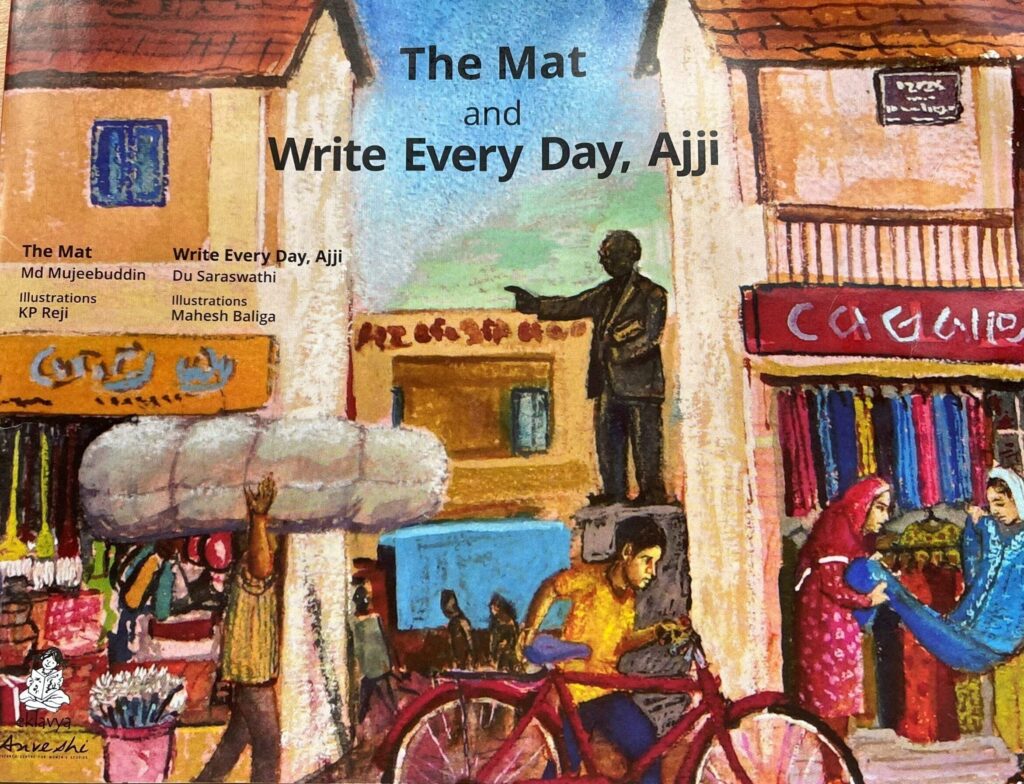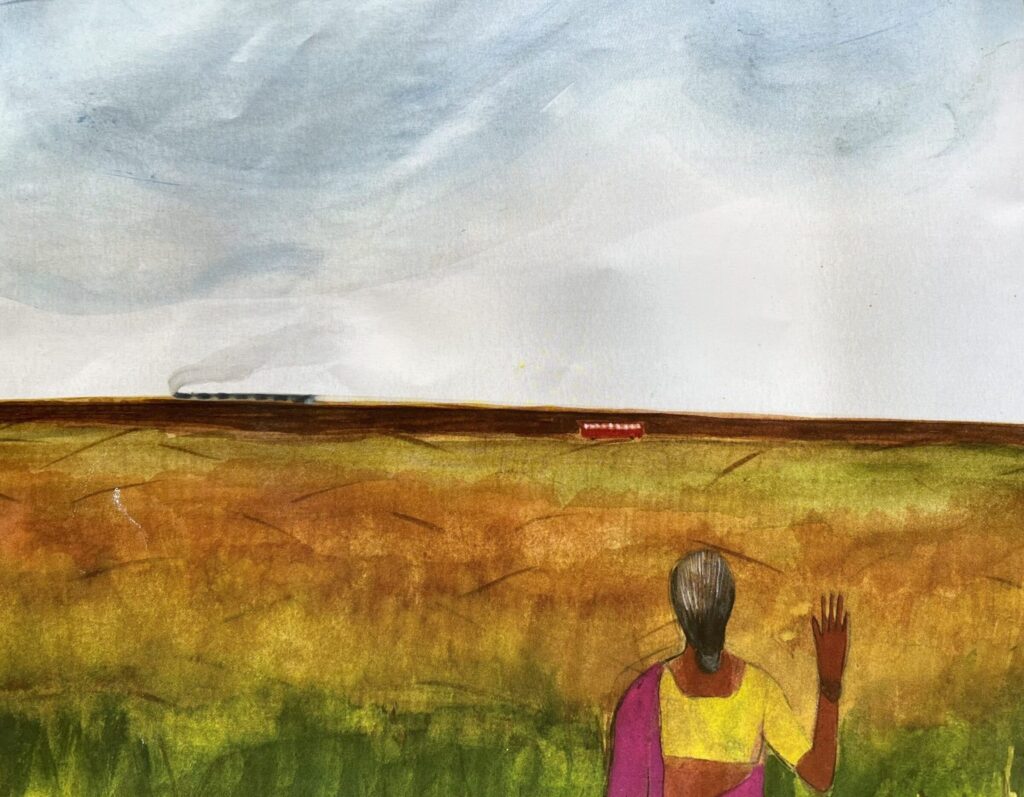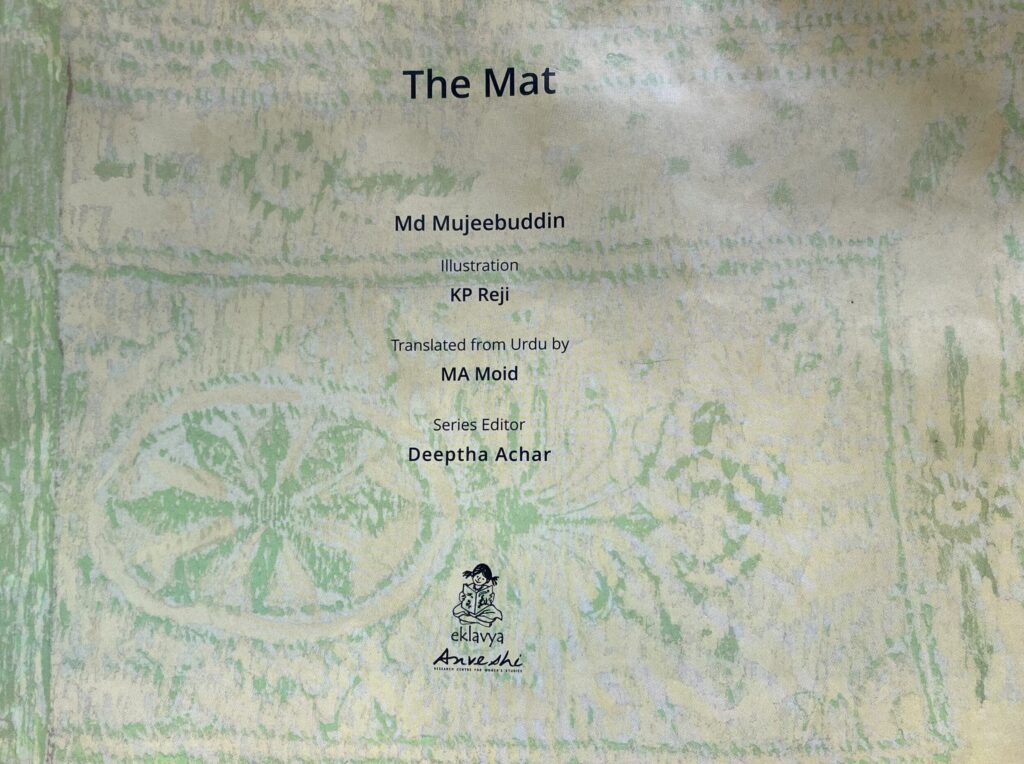November, 2024
“Can you come to a Consultation on the Different Tales books ?”
Within 48 hours I had rearranged two other meetings , a presentation, domestic arrangements, and found myself enroute to Hyderabad at the appointed hour – giddily poring over photos and notes from various note books , conversations with Bookworm team members and reflections on Bookworm’s experience with the Different Tales books. I was so excited that I would finally be in the presence of the team that brought to our libraries and our work Different Tales, a set of books that gifted us thirteen stories steeped in plural childhoods that we had never read before. Reading in translation is so important for those of us who come from dominant language traditions – whole worlds open up when we read books in translation. But these stories are more – they are also bringing to life in powerful visual and text language, world-views which enrich and fill us with hope. In all our multiple and varied use of these books, we have been enabled to validate plural childhoods, so for us this was a celebration !
Imagine my joy, however, when the Consultation schedule announces the book release of a NEW Different Tales book. Of Course I bought multiple copies ! This is not even to be thought about – know that it will be a fine purchase for any library, any and every child and reader. Over the past few years, we have observed a shift in the publishing, size, quality and availability of Different Tales because of a new partnership with Eklavya Foundation. Something tremendous always unfolds when we align with a shared value system and ethos. I suspect that is coming to bear in this relationship and as consumers of books in the library, we are so thankful for this partnership because we find easy, prompt and efficient access to these books through Eklavya Foundation’s distribution network. We can now hold these texts in English, Hindi, Telugu and Kannada thanks to earlier regional partners and we constantly wait to surprise and delight readers with these different tales as well as provoke enquiry, reflection and expansion of our ideas about children and society.
What makes these books very special for us at Bookworm, beyond their availability in English for now, is that they tell stories which centre children and their tremendous capacity for agency, thoughtfulness, resourcefulness and joy. Everything that adults sometimes think they have to ‘teach’ children, is already there and simply needs to be captured. This act of harvesting and reproducing the experience in the story format is not a simple one. We suspect that the series editors on the Different Tales project are continuing to learn about what works and what may need adaptation but as Susie Tharu writes, “ … These books throw open the doors of the shuttered house to let in lively children of different classes, castes, religious cultures, and physical abilities…” and The Mat and Write Every Day, Ajji do just that.
Md Mujeebuddin and KP Reji, magically conjure up a neighbourhood around the Dargah where the young protagonist of The Mat plays and mediates his day to day activities. The neighbourhood is inhabited by residents who are in close relationship with each other and a cycle ride away lies a vibrant market place, brought to life in the book cover image.This story is translated from the Urdu and I cannot wait to take it to children who know little about this language and its people – because reading is intended to expand our world. The Mat did this for me , despite my life experience.
The plot as you probably guessed is centred around ‘the’ mat , a seemingly innocuous intended purchase by our narrator on behalf of an elder Khala in the community. Khala has handed out money that does not equal the market price of mats and our helpful, considerate, conscientious narrator now needs to problem solve this dilemma to make good his commitment to the purchase. How does he do this ? You are unlikely to guess, suffice to say there is an event in the Mosque adjacent to the Dargah that gives him the beginning of a solution that only leads to more problems and dilemmas as the story unfolds. I was keen to understand how it would end and The Mat has everything we long for in a good story – a surprise, an awakening, so much to think about and also to laugh and be amused by. Joy that only a child’s mind and world can evoke is richly present in this story.
Taking one of my many long, deep breaths as an act of refreshment I began Write Every Day, Ajji by Du Saraswathi and Mahesh Baliga – the second story in this book translated from the Kannada. The title itself is endearing, I try to write everyday and when my own Ajji lived she wrote back – so I was keen to know more about this Ajji. As I read, I entered a more expansive relationship and another world and was exhilarated whilst I was there and long after. The story has so many modes quite seamlessly printed together. There are the brief, instructive – informative post cards that mother Lakshmamma exchanges with her daughter Gangamma D L to set a context for us. We are then introduced to the wonderfully familiar and possibly new for some chaos and joy that unfolds with train travel and a return to a beloved ‘native’ place, in the voice of the grandchildren’s telling. And then the visual language of the book gives us a peek into broad vistas of the landscape.
The story takes us with the children on their journey route and modes of travel to meeting Ajji. I was struck by how my own mother ( and also an Ajji) at 87 years insists on meeting every relative on arrival quite like this Ajji – who can hear the children on the train, before she sees them. There are mouth watering food preparations, and a careful description of the binding ritual that brought the family back to Ajji . Daily routines of song, bed time conversation and deep and varied languages of love through out the story evoked in me both a longing for my own childhood and the joy of knowing that such childhood experiences abound and secure the future of our beloved children. “Write a letter every day Ajji, we will come every day”, says young Gudumi at the end of this story and I thought, isn’t this what writers and series Editors like those of the Different Tales have done for us, readers ?
To buy this book and others like this from our Burrow Bookstore, write to us at mail@bookwormgoa.in




Such an endearing review that invites us to own this book with 2 evocative stories right away and keep reading them.
Thank you Jyoti. So happy you read and even happier you commented. It feels lovely. Do let us know if you use the book and how children respond to the stories.